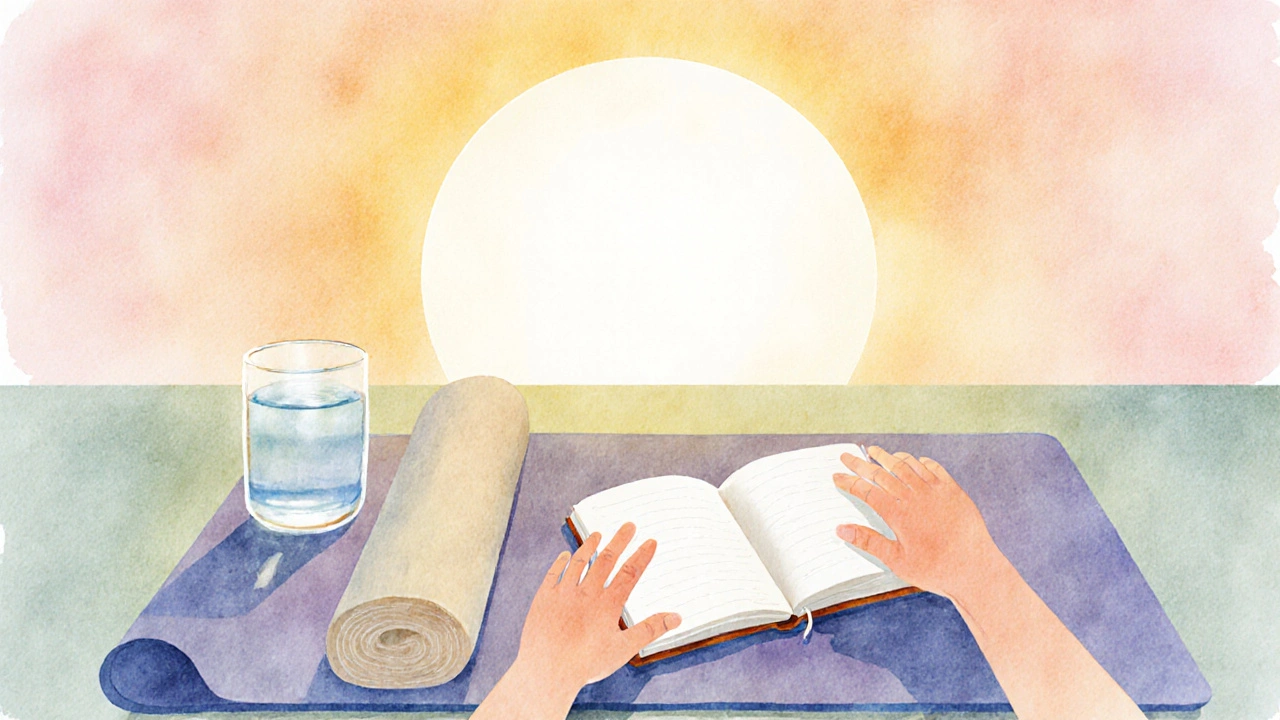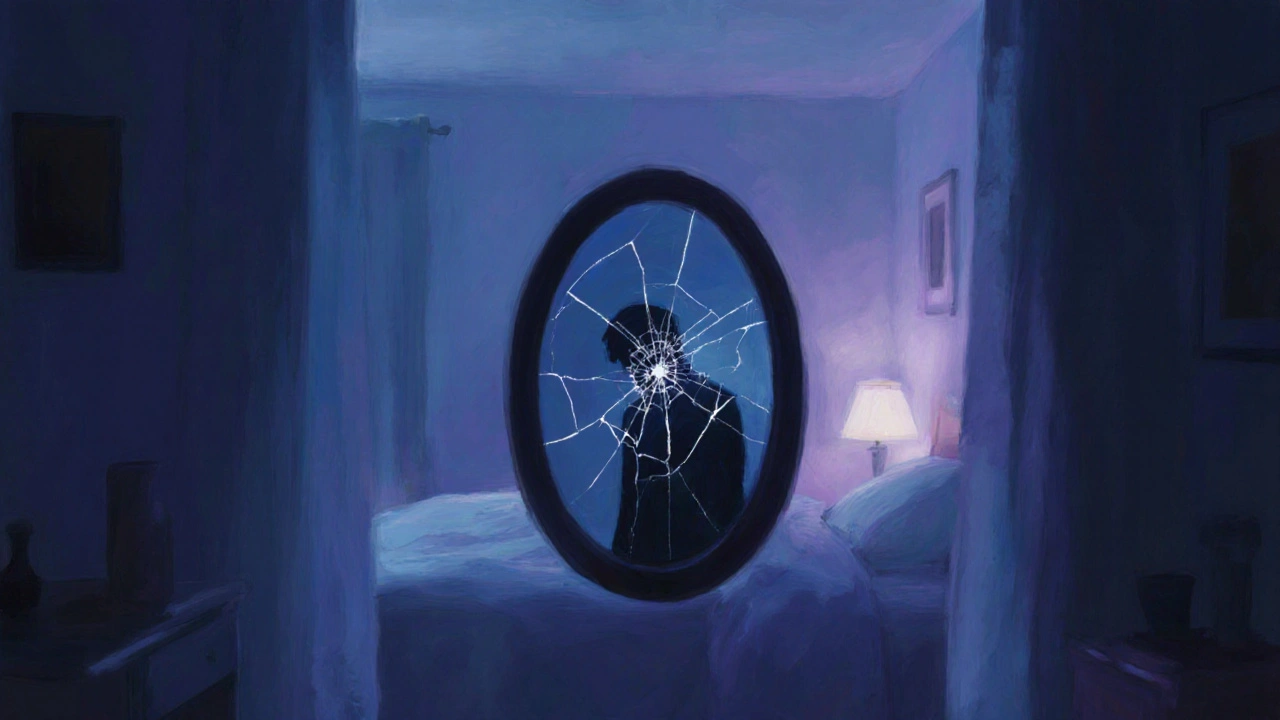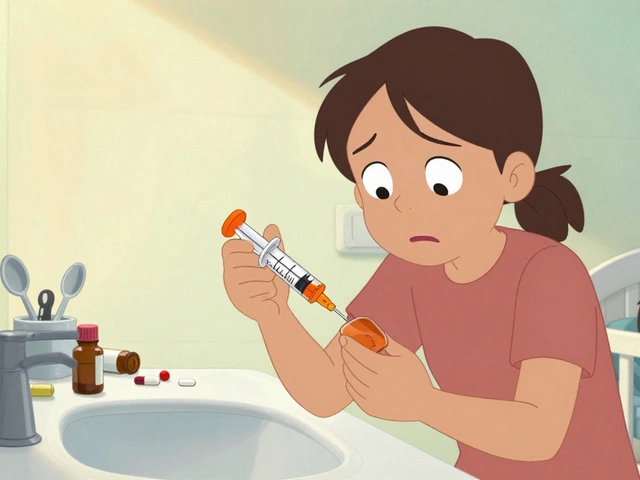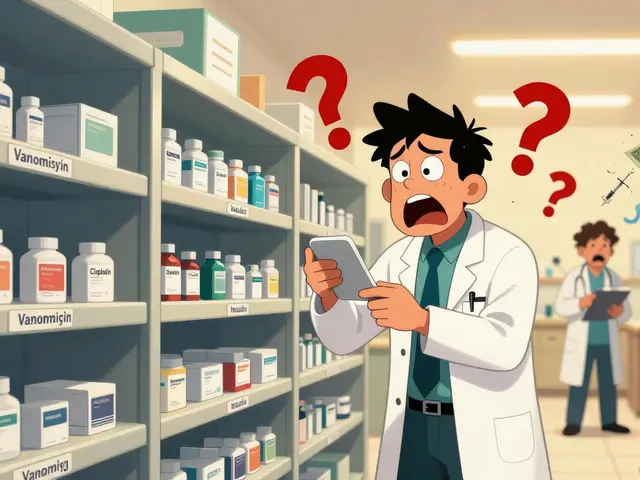Libido & Confidence Assessment
How Low Libido Affects Your Confidence
This assessment identifies the most likely triggers affecting your self-worth and confidence. Based on your responses, we'll provide personalized insights and actionable steps from the article.
When desire for intimacy dwindles, it’s not just the bedroom that feels the strain - the whole sense of self can wobble. Low libido is a reduced interest in sexual activity that can stem from physical, emotional, or situational factors. Understanding how this shift seeps into self‑esteem and confidence helps you break the cycle before it pulls you deeper.
Key Takeaways
- Low libido often triggers self‑critical thoughts, lowering self‑esteem.
- Hormonal changes, stress, and relationship dynamics are common culprits.
- Practical steps-mind‑body practices, communication, and professional help-can restore confidence.
- Early intervention prevents long‑term mental‑health fallout.
What Exactly Is Low Libido?
Low libido refers to a noticeable drop in sexual desire that lasts weeks or months and isn’t just a temporary dip. It differs from asexuality, which is a lifelong orientation, and from occasional fatigue. The experience is highly personal; one partner might feel fine while the other battles a persistent lack of interest.
How Low Libido Undermines Self‑Esteem
Self‑esteem is the overall evaluation you make of your own worth often hinges on how well you feel you meet societal and personal expectations. When sexual desire fades, many internalize the change as a personal flaw: “I’m not attractive enough,” or “I’m losing my masculinity/femininity.” These thoughts fuel a negative feedback loop, eroding confidence and encouraging withdrawal from intimacy and other life areas.

The Confidence Connection
Confidence is the belief in your ability to handle situations and present yourself positively ties closely to self‑esteem but focuses on action. Low libido can create a perception of inadequacy in performance, leading people to avoid social occasions, dating, or even work presentations out of fear of being judged. Over time, this avoidance shrinks the confidence muscle just as a sedentary lifestyle weakens the body.
Common Triggers That Link Libido and Self‑Perception
Identifying the root causes lets you target the right fixes. Below is a quick snapshot of the most frequent drivers.
| Cause | Physical Effect | Typical Self‑Esteem Impact |
|---|---|---|
| Hormonal shifts | Reduced testosterone or estrogen, thyroid imbalance | Feels "less manly/womanly", questions attractiveness |
| Chronic stress | Elevated cortisol, fatigue | Self‑blame for "being weak" under pressure |
| Relationship dynamics | Emotional distance, unresolved conflicts | Guilt or shame about not meeting partner’s expectations |
| Medication side‑effects | Antidepressants, antihypertensives dampen arousal | Feels “faulty” or “broken” because of a pill |
| Lifestyle factors | Poor sleep, alcohol, lack of exercise | Perceives self as “unhealthy”, lowers self‑value |
Practical Ways to Rebuild Self‑Esteem and Confidence
Addressing the issue from both sides-physical and mental-creates a sturdier foundation.
- Check Your Health Baseline: Schedule a blood panel to assess hormone levels, thyroid function, and vitamin D. Normalizing a deficiency often sparks a quick boost in desire.
- Mind‑Body Reset: Incorporate yoga or tai chi 3‑4 times a week. These practices lower cortisol and improve body awareness, directly feeding confidence.
- Sleep Hygiene: Aim for 7‑9 hours. Deep sleep spikes growth hormone, which helps regulate libido.
- Open Dialogue: Share feelings with your partner using "I" statements-e.g., "I feel insecure when my desire drops, and I need your support." Transparent communication eases relationship pressure.
- Limit Alcohol & Nicotine: Both suppress arousal and can reinforce the belief that you’re “damaged.” Cutting back sharpens both physical response and self‑image.
- Seek Professional Guidance: Therapy (sex therapy, CBT, or couples counseling) provides tools to reframe negative self‑talk and develop healthier intimacy patterns.
- Set Small Wins: Celebrate non‑sexual confidence milestones-a presentation done well, a new hobby mastered. Success in one area bleeds into sexual self‑perception.

When to Reach Out for Help
If low libido persists for more than three months, or if you notice a steep decline in self‑esteem that starts affecting work, friendships, or daily joy, professional support is advisable. A mental‑health professional who specializes in sexual health can assess underlying anxiety, depression, or trauma and recommend targeted interventions.
Bottom Line
Low libido isn’t just a bedroom problem; it ripples into how you view yourself and how confidently you engage with the world. By pinpointing triggers-whether hormones, stress, or relational patterns-and applying a mix of lifestyle tweaks, open communication, and professional help, you can restore both desire and the sense of worth that fuels confidence.
Frequently Asked Questions
Can low libido be a sign of depression?
Yes. Depression often lowers energy and interest in activities, including sex. Conversely, persistent low libido can worsen mood, creating a two‑way street. A mental‑health evaluation can clarify the relationship and guide treatment.
Do birth‑control pills affect self‑esteem?
Some hormonal contraceptives can lower libido, which may trigger self‑critical thoughts. If you notice mood or desire changes, discuss alternatives with your provider; different formulations can have varied effects.
How long does it take to see improvement after lifestyle changes?
Results vary, but many people notice a lift in desire and confidence within 4‑6 weeks of consistent sleep, exercise, and stress‑reduction routines. Patience and consistency are key.
Is sex therapy covered by insurance?
Coverage depends on the plan and the therapist’s credentials. Many health insurers treat sex therapy as a form of mental‑health counseling, so it’s worth checking your policy or asking the provider’s office for billing details.
Can I improve confidence without a partner?
Absolutely. Confidence builds from any area where you set goals and achieve them-career, hobbies, fitness, or personal growth. These wins reinforce a positive self‑image, which later translates into healthier sexual confidence, partnered or solo.






Corey Jost
October 12, 2025 AT 05:58People love to dramatize low libido as the ultimate ruin of confidence, but the reality is far more nuanced. When you constantly hear that a dip in desire equals a crash in self‑esteem, you start to internalize a narrative that isn’t backed by evidence. Libido is a fluid signal, influenced by hormones, stress, sleep, and relationship dynamics, not a static meter of worth. In fact, many individuals experience periods of lower desire without any corresponding dip in confidence, simply because they have other sources of validation. The brain’s reward circuitry can pivot toward achievements, hobbies, or intellectual pursuits, keeping the self‑image intact. Moreover, the cultural obsession with sexual performance creates a feedback loop that magnifies trivial fluctuations into existential crises. It’s critical to disaggregate the myth that sexual drive is the sole barometer of personal value. Psychological research shows that self‑esteem is fundamentally rooted in competence, belonging, and autonomy, not just erotic energy. If you focus exclusively on libido, you neglect the broader tapestry of identity that sustains confidence. A balanced assessment should therefore consider lifestyle factors, mental health, and relational communication alongside sexual appetite. Ignoring these dimensions reduces a complex human experience to a one‑dimensional checklist. While the article’s questionnaire aims to pinpoint triggers, it may inadvertently reinforce the very stigma it wishes to dissolve. Remember, confidence can be rebuilt through incremental successes in varied life domains, not merely by forcing a return to previous sexual patterns. Reframing the narrative from “I’m broken because I’m not horny” to “I’m human and my desire ebbs and flows” is a vital first step. Finally, therapeutic interventions that target stress reduction, sleep hygiene, and relational openness often yield more sustainable confidence boosts than quick‑fix libido pills. In short, low libido does not have to be a death knell for self‑esteem; it can be a prompt to explore deeper aspects of self‑worth.
Nick Ward
October 13, 2025 AT 09:45Hey, I totally get how overwhelming all those points can feel, but you’re definitely not alone in this. It’s okay to feel a dip in confidence and still have a lot of value in other areas of life. 🌱 Small steps like talking openly with a partner or setting a bedtime routine can make a huge difference. You deserve compassion, especially when your mind starts the negative chatter. Remember, confidence is built on many pillars, not just sexual energy.
Take a breath, be kind to yourself, and keep moving forward. :)
felix rochas
October 14, 2025 AT 13:32Listen up! The whole "low libido = low confidence" narrative is part of a larger agenda to keep us docile. Big pharma pushes the myth so they can sell you endless supplements while the real culprits-stress, sleep deprivation, and the surveillance-state of constant digital distraction-are ignored. If you’re feeling off, look at who’s profiting from your anxiety, not just your bedroom performance. The media, the wellness industry, they all want you to believe your worth is linked to a hormone level. Wake up, question the sources, and stop letting anonymous experts dictate your self‑esteem. It’s a systematic manipulation, plain and simple. And don’t even get me started on the hidden data mining from those ridiculous quizzes-you’re feeding them your insecurities for free!
allen doroteo
October 15, 2025 AT 17:18Low libido? Maybe ur just afk on the love front lol.
inder kahlon
October 16, 2025 AT 21:05Practical tip: Track your sleep and stress levels for a week. Correlate any low‑energy days with how you felt sexually. This simple data can reveal patterns that aren’t obvious in the moment and guide you toward specific lifestyle tweaks.
Dheeraj Mehta
October 18, 2025 AT 00:52Hang in there! 🌟 Even a tiny boost in daily movement can lift mood and, surprisingly, libido. Keep smiling, the sun’s on your side!
Oliver Behr
October 19, 2025 AT 04:38From a cultural angle, many societies view intimacy as a communal celebration rather than a performance metric. Re‑framing desire as a fluid, shared experience can relieve personal pressure and restore confidence.
Tiffany W
October 20, 2025 AT 08:25It is ethically indefensible to perpetuate a discourse that equates physiological variance with moral deficiency. Such praxis erodes the ontological integrity of the individual, fostering a pernicious cycle of self‑stigmatization.
Rajeshwar N.
October 21, 2025 AT 12:12While the moralistic rhetoric is noted, the data suggests that personal agency often mitigates perceived deficits. A balanced analytical approach reveals that self‑perception can be recalibrated through targeted cognitive restructuring, not merely moral admonition.
Louis Antonio
October 22, 2025 AT 15:58Yeah, sure, but all that stuff sounds like a textbook. In reality, you just gotta stop overthinking and do something that makes you feel good, whether it’s a workout or a gaming marathon. No need to turn it into a philosophical debate.